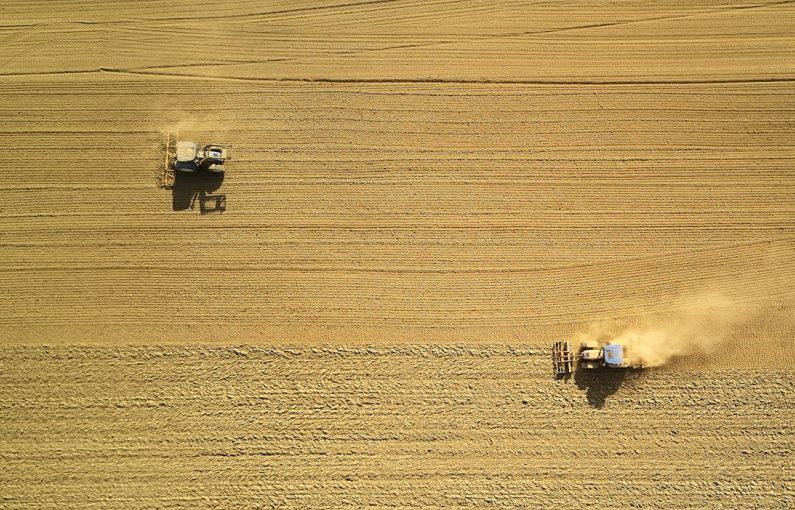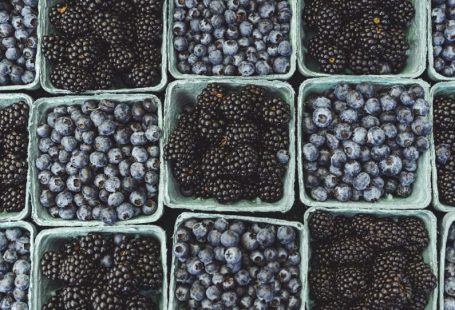Agriculture has been a vital part of human civilization for thousands of years, providing sustenance and livelihoods for communities around the world. With the global population on the rise and the need for sustainable food production becoming increasingly urgent, the integration of biotechnology in agribusiness is playing a crucial role in advancing the industry. Through innovative genetic manipulation techniques and scientific advancements, biotechnology is revolutionizing the way we grow, harvest, and distribute food, ultimately shaping the future of agribusiness.
Enhancing Crop Yields and Quality
One of the primary contributions of biotechnology to agribusiness is the development of genetically modified organisms (GMOs) that are designed to resist pests, diseases, and harsh environmental conditions. These genetically engineered crops have significantly increased crop yields, ensuring a more reliable food supply to meet the demands of a growing population. Additionally, biotechnology has enabled the enhancement of crop quality by introducing traits that improve taste, appearance, and nutritional content. By harnessing the power of biotechnology, farmers can cultivate more resilient and nutritious crops, thereby increasing their profitability and sustainability.
Improving Pest and Disease Management
Biotechnology has also revolutionized pest and disease management in agriculture. Through the development of genetically modified crops that are resistant to specific pests and diseases, farmers can reduce their reliance on chemical pesticides and herbicides, leading to a more environmentally friendly and cost-effective approach to crop protection. Biotechnology has enabled the creation of crops that produce their pesticides internally, targeting harmful insects while minimizing the impact on beneficial organisms. By incorporating biotechnology into pest and disease management strategies, agribusinesses can mitigate losses due to crop damage and ensure a more sustainable farming future.
Enhancing Environmental Sustainability
The integration of biotechnology in agribusiness has paved the way for more sustainable farming practices that minimize environmental impact. By developing crops that require fewer inputs such as water and fertilizer, biotechnology helps to conserve natural resources and reduce greenhouse gas emissions associated with agriculture. Additionally, biotechnology enables the cultivation of crops on marginal lands that are typically unsuitable for agriculture, expanding arable land and reducing pressure on valuable ecosystems. Through the adoption of biotechnology-driven sustainable practices, agribusinesses can contribute to mitigating climate change and preserving biodiversity for future generations.
Meeting Consumer Demands
Consumer preferences and demands are constantly evolving, with an increasing focus on health, sustainability, and transparency in food production. Biotechnology plays a crucial role in enabling agribusinesses to meet these changing consumer expectations by offering products that are nutritious, safe, and environmentally friendly. By developing genetically modified crops with enhanced nutritional profiles, reduced allergenicity, and improved shelf life, biotechnology allows agribusinesses to cater to a diverse range of consumer needs and preferences. Additionally, biotechnology enables the traceability and labeling of products, providing consumers with valuable information about the origin and production methods of their food. Through the integration of biotechnology, agribusinesses can build consumer trust and loyalty while driving innovation in the food industry.
Empowering Smallholder Farmers
Smallholder farmers play a significant role in global food production, particularly in developing countries where agriculture is a primary source of livelihood. Biotechnology has the potential to empower smallholder farmers by providing them with access to innovative technologies and resources that can enhance their productivity and income. By offering genetically modified seeds that are resistant to pests and diseases, drought-tolerant, and high-yielding, biotechnology enables smallholder farmers to improve their crop yields and financial stability. Additionally, biotechnology provides smallholder farmers with knowledge and tools to adopt sustainable farming practices that conserve resources and protect the environment. By leveraging biotechnology, agribusinesses can support smallholder farmers in overcoming challenges and achieving greater success in agriculture.
Driving Technological Innovation
Biotechnology serves as a catalyst for technological innovation in agribusiness, driving the development of advanced tools and solutions that enhance efficiency and productivity. From precision agriculture techniques that optimize resource use to gene editing technologies that accelerate crop breeding, biotechnology offers a wide array of tools that revolutionize the way agribusinesses operate. By embracing biotechnological innovations, agribusinesses can streamline their operations, reduce costs, and increase profitability. Furthermore, biotechnology fosters collaboration and knowledge sharing among industry stakeholders, fueling a culture of continuous improvement and growth in the agribusiness sector. Through ongoing investments in biotechnological research and development, agribusinesses can stay at the forefront of innovation and remain competitive in a rapidly evolving market.
Sustainable Future of Agribusiness
As the global population continues to grow, the role of biotechnology in progressing agribusiness becomes increasingly vital in ensuring food security, environmental sustainability, and economic prosperity. By harnessing the power of biotechnology to enhance crop yields and quality, improve pest and disease management, enhance environmental sustainability, meet consumer demands, empower smallholder farmers, and drive technological innovation, agribusinesses can navigate the challenges of the 21st century and build a sustainable future for agriculture. Through strategic investments in biotechnological research, collaboration, and innovation, agribusinesses can unlock new opportunities, overcome obstacles, and contribute to a thriving and resilient agricultural sector that nourishes people and the planet for generations to come.
In conclusion, the integration of biotechnology in agribusiness is a transformative force that is shaping the future of food production and distribution. By leveraging the power of biotechnological innovations, agribusinesses can enhance productivity, sustainability, and profitability while meeting the evolving needs and expectations of consumers. Through strategic investments in research, development, and collaboration, agribusinesses can unlock new opportunities, drive technological advancement, and secure a sustainable future for agriculture. The role of biotechnology in progressing agribusiness is not only essential for the industry’s growth and success but also for ensuring food security, environmental stewardship, and economic resilience in a rapidly changing world.





